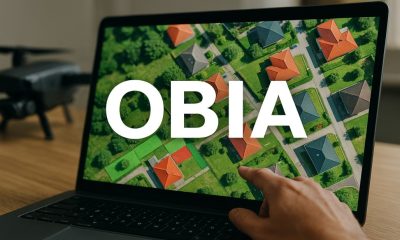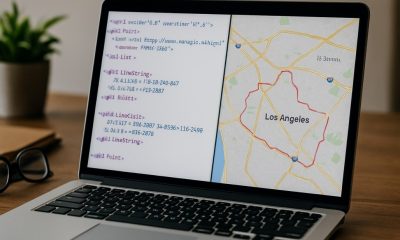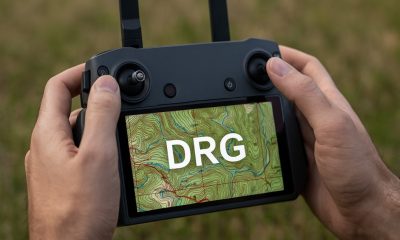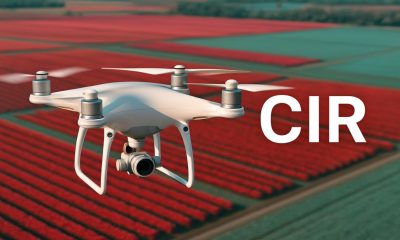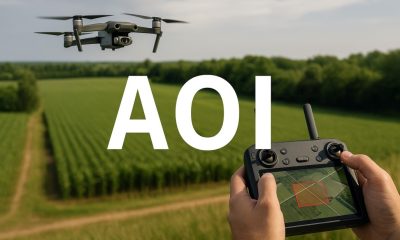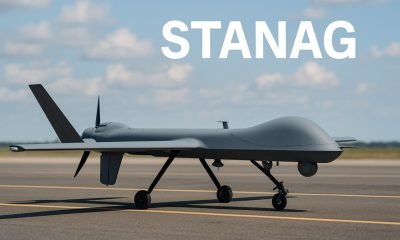German Drone Regulations
German Drone Privacy and Security
Published
8 months agoon
Table Of Contents

German Drone Privacy and Security Laws – What Are They?
German Drone Privacy and Security regulations are designed to protect individuals’ personal data and ensure the safe use of drones across various applications. With stringent rules established by the Luftfahrt-Bundesamt (LBA) and in alignment with the General Data Protection Regulation (GDPR), operators must take measures to prevent unauthorized data collection and secure the data gathered during drone operations. Understanding German Drone Privacy and Security requirements is essential for maintaining compliance and protecting public trust in drone technology.
As drone usage grows in Germany, concerns regarding privacy and security have become increasingly important. The collection of aerial data, images, and videos by drones raises legal and ethical considerations, particularly regarding the protection of personal information. Germany, known for its stringent data protection laws, has established clear regulations to ensure that drone operations do not infringe on individuals’ privacy or compromise security.
Privacy Protection
Germany’s Data Protection Laws
Drone operations in Germany are subject to strict privacy regulations, primarily governed by the General Data Protection Regulation (GDPR). This regulation ensures that any personal data collected by drones is handled responsibly, with clear limits on how that data can be stored, processed, and shared.
Key points include:
- Consent Requirement: Operators must obtain explicit consent from individuals if the drone is capturing identifiable images or video of them. This applies especially in residential areas or public places where people’s privacy may be affected.
- Purpose Limitation: Data collected by drones must be used only for its intended purpose. Operators cannot use the data for other, unrelated activities without consent.
- Transparency: Operators must clearly inform individuals if they are being recorded by a drone, especially in public spaces. This may involve providing clear signage or other forms of notification.
- Data Storage and Access: Personal data collected by drones must be stored securely and protected from unauthorized access. Operators are also required to provide individuals with access to their data if requested, including the right to request its deletion or correction.
Regulations on Aerial Photography
When using drones for aerial photography or videography, operators must be particularly mindful of capturing private property, especially in residential areas. Filming or photographing individuals in their homes or private gardens without consent can lead to legal repercussions under German law, particularly in violation of GDPR’s personal data protections.
Informed Consent and Safe Use in Public Spaces
In cases where drones are used for commercial purposes, such as event photography or public surveillance, operators must ensure they follow informed consent practices. Individuals who are recorded must be made aware of the drone’s presence, the purpose of the data collection, and how the footage will be used.
Data Security
Securing Drone Data
Data collected during drone operations must be securely stored and protected from unauthorized access or breaches. To comply with GDPR and German data protection laws, operators must implement robust security measures, including:
- Encryption: All data transmitted from the drone to its control system, and any stored data, must be encrypted to prevent unauthorized access or tampering.
- Access Control: Operators must ensure that only authorized personnel have access to drone data. This includes using strong authentication measures, such as multi-factor authentication, to limit access to sensitive information.
- Data Minimization: Drone operators are encouraged to collect only the data necessary for the specific purpose of the operation, minimizing the risk of privacy breaches by limiting unnecessary data collection.
Incident Response Plans
In the event of a data breach or security incident, operators must have a plan in place to respond quickly and effectively. This includes:
- Notification of Authorities: If personal data has been compromised, operators are required to notify the relevant data protection authorities (such as Germany’s Federal Commissioner for Data Protection and Freedom of Information) within 72 hours, as stipulated by GDPR.
- Informing Affected Individuals: If the breach affects individuals’ personal information, operators must inform them promptly, detailing the nature of the breach and steps taken to mitigate its impact.
Security Concerns Related to Drone Technology
Cybersecurity Risks
Drones, like any internet-connected devices, are vulnerable to cybersecurity threats. Operators must be aware of the risks associated with hacking, unauthorized control, or data interception. To mitigate these risks, drones should have:
- Secure Communication Channels: Drones must use encrypted communication links between the aircraft and its control station to prevent unauthorized interference.
- Firmware Updates: Regularly updating the drone’s firmware ensures that it is protected against the latest security vulnerabilities. Drone manufacturers often release updates to patch known issues, which operators should install promptly.
Restricted Areas and Geofencing
To protect sensitive areas from unauthorized drone activity, Germany uses geofencing technology that prevents drones from flying into restricted areas such as airports, government buildings, and military zones. Geofencing relies on GPS data to create virtual boundaries that drones cannot cross, helping operators avoid accidental violations of airspace restrictions.
Best Practices for Drone Privacy and Security
- Clear Privacy Policies: Operators, especially those conducting commercial drone operations, should develop clear privacy policies outlining how data is collected, stored, and shared. This transparency is crucial for building trust with the public and ensuring compliance with GDPR.
- Regular Audits: Conducting regular audits of data collection practices helps ensure that drone operators are following privacy and security regulations and keeping up with any legal changes or technological advancements.
- Training and Awareness: Operators should undergo regular training to stay informed about the latest privacy laws and security practices. This includes understanding how to handle sensitive data and how to mitigate cybersecurity risks.
Summary
Adhering to German Drone Privacy and Security regulations is crucial for ensuring the ethical and lawful use of drones in Germany. By following these guidelines, operators can safeguard personal data, avoid privacy infringements, and reduce security risks. Compliance with these regulations not only helps prevent legal consequences but also contributes to a safer and more responsible use of drone technology, supporting a secure and trustworthy environment for both operators and the general public.
To Learn more about acronyms used in this article visit our Drones Acronym Page.
